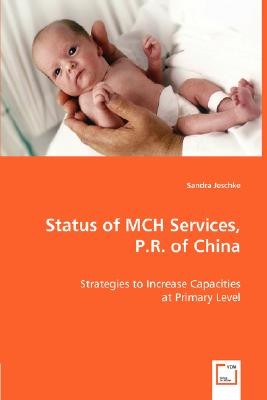
- We will send in 10–14 business days.
- Author: Sandra Jeschke
- Publisher: VDM Verlag Dr. Mueller E.K.
- Year: 2008
- Pages: 72
- ISBN-10: 3639004167
- ISBN-13: 9783639004168
- Format: 15.2 x 22.9 x 0.4 cm, minkšti viršeliai
- Language: English
- SAVE -10% with code: EXTRA
Reviews
Description
While the Peoples Republic of China has undergone tremendous eco-nomic growth in recent years, its health care system continues to pose major challenges. The question concerning qualified staff arises parti-cularly in rural areas where an adequate health care for pregnant women and children is not always guaranteed. How can the lack of qualified health personnel be addressed constructively? Where do possibilities and opportunities for improvement exist? In this context, the author Sandra Jeschke defines the correlations within the current personnel management of the Chinese health care system by focusing on the staff in MCH services. The analysis and presentation of the study results are followed by various recommendations not only for a more efficient personnel policy particularly in view of future staff but also on the environment of the national programmes of MCH services and family planning, currently existing in parallel. This book addresses scientists in the multidisciplinary field of national and international public health, personnel policy makers within health services, and interested laypersons.
EXTRA 10 % discount with code: EXTRA
The promotion ends in 22d.09:40:25
The discount code is valid when purchasing from 10 €. Discounts do not stack.
- Author: Sandra Jeschke
- Publisher: VDM Verlag Dr. Mueller E.K.
- Year: 2008
- Pages: 72
- ISBN-10: 3639004167
- ISBN-13: 9783639004168
- Format: 15.2 x 22.9 x 0.4 cm, minkšti viršeliai
- Language: English English
While the Peoples Republic of China has undergone tremendous eco-nomic growth in recent years, its health care system continues to pose major challenges. The question concerning qualified staff arises parti-cularly in rural areas where an adequate health care for pregnant women and children is not always guaranteed. How can the lack of qualified health personnel be addressed constructively? Where do possibilities and opportunities for improvement exist? In this context, the author Sandra Jeschke defines the correlations within the current personnel management of the Chinese health care system by focusing on the staff in MCH services. The analysis and presentation of the study results are followed by various recommendations not only for a more efficient personnel policy particularly in view of future staff but also on the environment of the national programmes of MCH services and family planning, currently existing in parallel. This book addresses scientists in the multidisciplinary field of national and international public health, personnel policy makers within health services, and interested laypersons.


Reviews